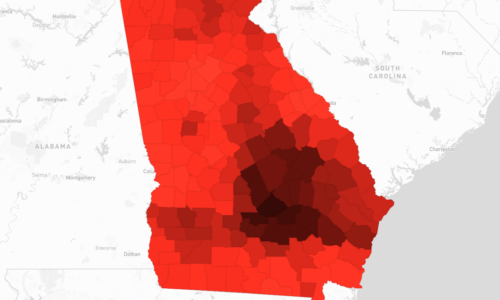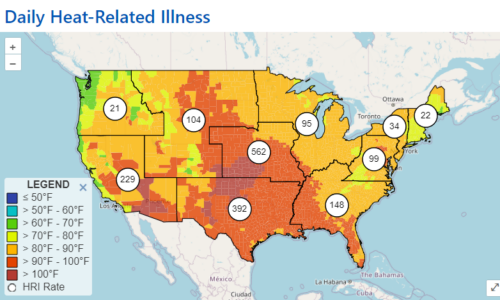CHART Research Core Team

Howard Chang
Professor of Biostatistics and Bioinformatics
Howard Chang, PhD, is a professor in the Department of Biostatistics and Bioinformatics at Rollins. His research interests focus on the statistical and computational methods for analyzing complex spatial-temporal exposure and health data. He has led/co-led multiple NIH projects to investigate health effects of environmental exposures, including extreme heat.

Stefanie Ebelt
Professor of Environmental Health
Stefanie Ebelt, ScD, is an associate professor in the Gangarosa Department of Environmental Health at Rollins School of Public Health. She brings a long-standing commitment to exposure science and epidemiological research in environmental health along with experience in program leadership and mentoring.

Christine Ekenga
Assistant Professor of Environmental Health
Christine Ekenga, PhD, is an assistant professor in the Gangarosa Department of Environmental Health at Rollins School of Public Health. She is a community-engaged environmental epidemiologist, with a focus on the health impacts of environmental and occupational hazards.

Eri Saikawa
Professor of Environmental Sciences
Eri Saikawa, PhD, is an associate professor of environmental health and a Winship Distinguished Research Professor of Environmental Sciences at Emory. Her research is interdisciplinary in nature, and it spans from 3D chemical transport modeling to land modeling to environmental policy. Saikawa has experience in personal exposure assessment, especially in low-resource settings.
About
High ambient temperature is a well-recognized environmental hazard to human health. Heat exposure is exacerbated in the urban environment due to high density of heat-absorbing structures, lower vegetation coverage, and increased human activity. The urban heat island effect can increase daytime temperature by 1- 7°F and nighttime temperature by 2-5°F compared to outlying areas. Within a city, the spatial variation in ambient temperature has been shown to result in heat exposure disparities associated with under- resourced communities.
While large population-based epidemiologic studies have reported various adverse health effects of heat, there remain important knowledge gaps in understanding:
- Who is at risk of heat- related health outcomes
- How an individual’s resource constraints, perceptions, and behaviors impact personal heat exposure and heat-related outcomes
- What features of the physical environment contribute to an individual’s heat exposure
The overarching goal of this project is to better understand factors leading to differential susceptibilities, particularly factors related to physiologic predisposition and exposure pathways that can help inform mitigation and adaptation strategies.
Aims
Identify disparities in associations between heat and emergency department (ED) visits in Atlanta, GA
Assess risk factors among patients experiencing heat-related illness (HRI) requiring ED care using a mixed methods matched case-control study design
Characterize temperature exposure for individuals living in under-resourced communities
Research Goals
We will first conduct a large case-only analysis in Atlanta, leveraging electronic medical records (EMR) from Grady Memorial Hospital and Emory Healthcare.
To address limitations associated with EMR data, we will also conduct a complementary matched case-control study to assess behavioral, social, economic, and housing-related factors that may contribute to risk heterogeneity.
Finally, we will work with community partners to conduct exposure monitoring in order to fill knowledge gaps in the contribution of residential environments and time-activity patterns on personal heat exposures among under-resourced populations.





